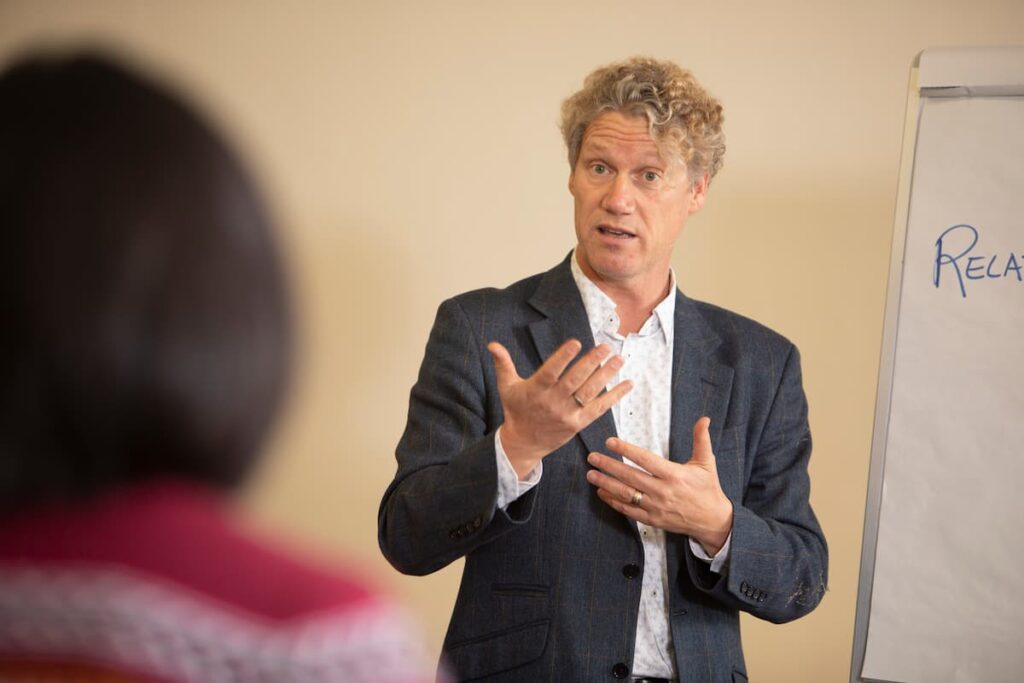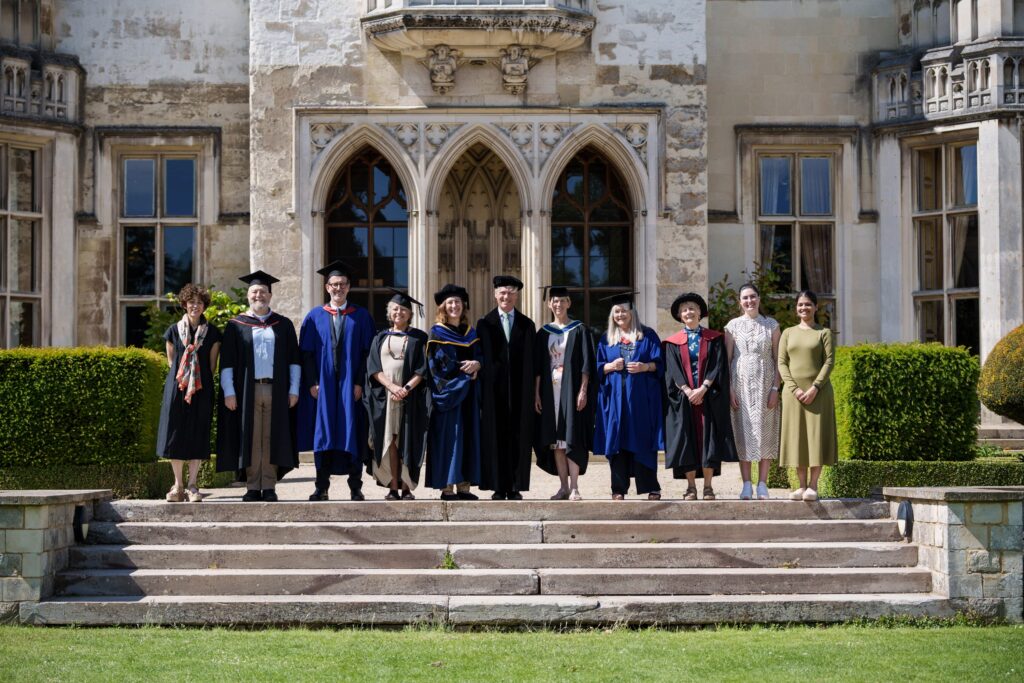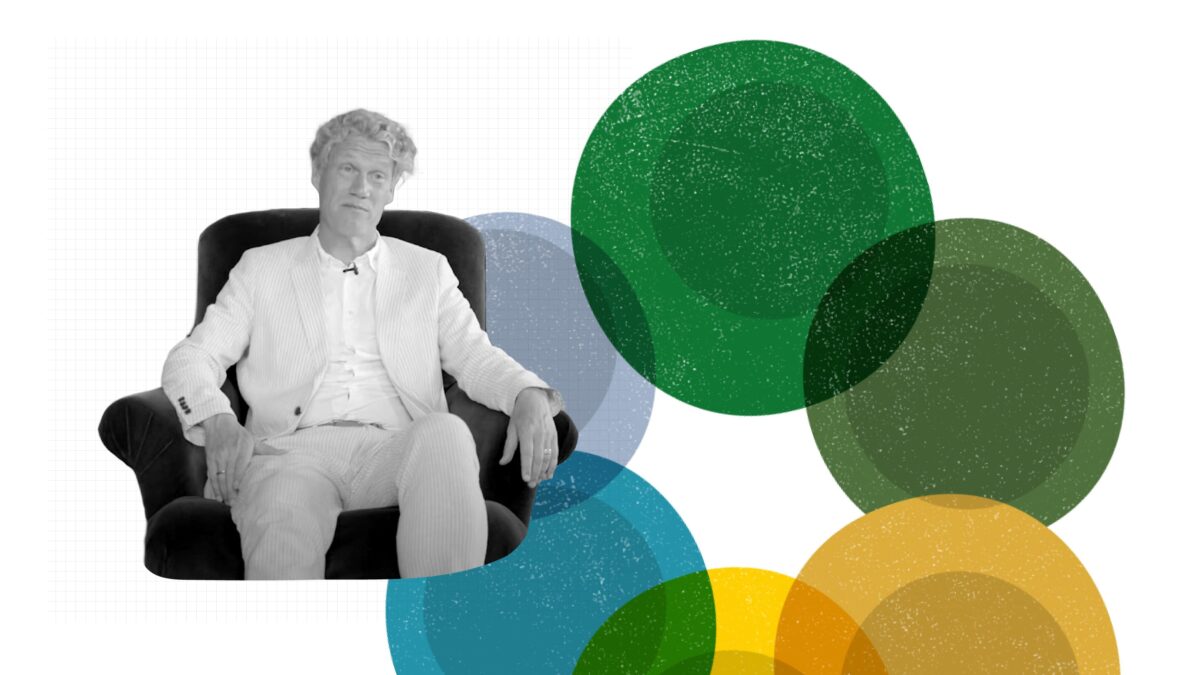Erik de Haan is the Director of Hult Ashridge’s Center for Coaching and an accomplished coach, professor, psychodynamic psychotherapist, author, and more. I recently had the chance to sit down with Erik for a coffee, so naturally I jumped at the chance to ask him a few questions. Here, he talks about how his formative experiences as a coachee led him into organizational development and subsequently coaching. He also shares his thoughts on the landscape more generally and advice for those who might be new to the coaching profession.
Hult: You found your “true” professional calling in coaching some years into your career, as many coaches do. What was your professional background before entering the coaching field, and what led to your transition?
Erik: There are two moments that come to mind. I was a physicist before and I wasn’t very happy. I knew I had to leave physics but didn’t have enough knowledge of other professions. So, I had a career counselor when I was 28. And I liked what he was doing. I thought, that’s interesting. He can just listen to people and make sense of it. As a result of that, I started as an organizational development (or “OD”) consultant. And I did that for many years.
The other moment was when I moved to the UK to join a much larger workplace. I felt I needed to specialize to differentiate myself. And that’s how I eventually became Mr Coaching at Ashridge. I see coaching as an application of OD consulting, which is a much wider field.
H: What sets OD and management consultancy apart, and where does coaching fit into that?
Erik: It’s a question that often goes unasked, yet it’s crucial to understand the dynamics of external assistance within organizations. Clients often ask for help when they’re struggling or want to expand or adapt to some kind of change they need to manage. They often don’t ask the question “What kind of help do I need?” You can essentially hire in expertise in the form of extra hands or brains, or through OD.
OD means changing the organization from within. So, you stay on the sidelines and you say, okay, what are the issues for you? What is not working? If this new strategy is not being rolled out, where’s the resistance, especially within yourself? And what can you do about the resistance? OD professionals ask a lot of questions of the organization, and that mobilizes or gets new energy. New perspectives or interpretations also help to change from within.


H: Whereas a management consultant comes in, does the work, and then leaves, taking their tools with them?
Erik: Yes exactly. Take for example when you get a flat tyre. You can either hire someone to come in with the tools to repair it, but the next time you get a flat tyre, you have to ring up the same mechanic again. OD provides companies with the tools to fix their own flat tyre.
And then, within that field, coaching is smaller field.
H: What are the challenges for OD?
Erik: It’s very much to do with learning, which can be painful. It often means that you have to give things up or learn to love elements of yourself that you previously dismissed. As Machiavelli said, you first have to give things up before the new things have given you any reward. That makes it very difficult to change from within as there’s often no motivation to give things up. If the motivation is your spouse, let’s say, or your boss—we’re not going to have much impact until you, the client, are willing to take responsibility.
If you’ve got organisations with very kind of alpha male types that don’t see themselves as the problem, or don’t even look at their own selves or emotions as relevant, they will look outside themselves. “I need this thing or that thing”. “We need to hire three more”. “We need to pay more”. If you have that sort of mentality, then you might not get very much out of coaching, even though it could still be extremely useful for you if it helps you to think again.
Some starting problems are intractable. We tend to feel as if we have no control over the thing we’re changing and that can be a problem.


H: Would you say there’s a bias towards or away from coaching in certain cultures or geographies?
Erik: That might become a little bit stigmatizing because there’s differing evidence from practitioners all over the world. If you take a culture which is low on trust outside of the family and very high on authority figures and gurus or mentors—for example, cultural models and measurement have shown that China tends to lean this way. And Chinese culture puts the teacher on a pedestal. You honor your parents first and then your teachers. One might think that coaching doesn’t fit with that because you’re not a teacher, you’re not an authority figure. You just ask questions. And yet I’ve seen evidence that coaching works very well in China. That’s why I don’t want to give an oversimplified answer. But yes, very generally, if an organisation or culture is more autocratic, then I think maybe coaching becomes more difficult.
H: What are the fundamental coaching differences between, say, Europe and China then do you think?
Erik: I’ve read one or two books about coaching in China and the consensus tends to be that it’s the same as in other parts of the world. However, it takes you longer to build that trust. So, the first few sessions might be a bit more cautious or dry or superficial. And then when there is an understanding … ‘Oh, this is what you can do. You can offer reflection. Maybe I can use some reflection. And you’re safe. You’re confidential. Maybe I can use that space.’ After trust grows, we have an open dialogue with humanity and everything else goes the same. You just might have a longer lead in. The same is very much true with other differences, especially if there are social differences and histories of conflict or oppression. Then it might take a really long time to trust!
H: What obstacles are you up against with people being receptive to coaching?
Erik: ‘Have you worked in my industry before? Have you?’ I’m very often asked about that initially. ‘We’re in telecoms,’ or ‘We produce chips,’ or ‘We produce biscuits. Have you been in that sort of environment before? Have you ever seen a biscuit factory in your life?’ And then if I say, no, then I might be met with uncertainty. They’re asking themselves ‘Do I let this person in or not?’ Understandably, leaders are initially looking for a reason to trust you and they often look for that reason in industry experience. ‘Okay, you’re already on our books. Good.’ Of course, these are arbitrary associations, because actually coming at it completely fresh can be a good thing.


H: So why do you think coaching is growing so rapidly globally?
Erik: It’s a trend we’ve been seeing for over 25 years now. In fact, it’s something we consider on day one of the course. There are various factors that are often mentioned by our participants. There’s a bit of a feeling about traditional helping roles e.g. related to the Church falling away and becoming less influential. Also, careers are much less predictable: individuals do not always carry on the family profession anymore and there is much more mobility.
But I think more importantly, something that we always find in those conversations is that leadership has changed as well. It’s much less predictable and also much more transparent.
H: How would you say leadership is so much less predictable and more transparent?
Erik: Organizations have mostly become much faster, let’s say thanks to technology. Most products and services sold now didn’t even exist four years ago. Moreover, they’re much more global, complex, changeable, and disruptive. That means more decisions for leaders, and thinking at a higher pace. Some of the data-based leadership decisions have even been taken over by machines. Much of the thinking that they used to do by themselves on a piece of paper is now taken over by software. The best tools are helping managers to be more present. So that means management is now more about working with people, motivating them, and listening to them.
Leadership has changed a lot as well. Where leaders are being followed inside the business or in the news, or you can send an email to, say, the CEO of your company and realistically expect a response. And that means less back-room decisions and the doubts of leaders being much more “in the room.” Leaders have to deal with their own doubts, with their own emotions, and with other people’s emotions. All of that means that the human side of leadership comes more and more to the fore. Coaching is tailored to that. It’s not generic business. It’s a tailored answer to a range of emotional, doubtful and existential questions. In the sense that it can really help the executive to form a new perspective.
H: What’s it like inside your classroom full of executive coaches?
Erik: It’s very interactive and very personal, obviously, because we’re going to talk about interpersonal psychology, even about psychotherapy. Most of the faculty here at Hult Ashridge are psychotherapeutically qualified as well. Psychotherapy is just a more robust field, with more history and better research. Firstly, we always try to create a learning community suitable for that. We sit around on comfy chairs. No tables. No PowerPoint! We have quite a few reflective moments before we teach, when we just sit there, try to be aware of how we are, of what’s going on, including in the group as well. We use any irritations, doubts, or breakthroughs that come up in the group. In short, we really care about the here and now. That’s what you do as a coach as well. If somebody reacts in a certain way, we might pause there and open that up: “Look, something just happened. Why was that? Would you be happy to say a bit more about that?”, and so on.
H: Is it like group therapy?
Erik: There are supervision groups where you very openly share how your work is going as a coach and people comment on that. But, generally, we’re talking about how they are with their clients. It’s not so much therapeutic for the participants themselves. It’s aimed at their craft, and we hope it is transformative for their clients. How good is the service they’re getting from their coach? Our participants learn something new, when they observe themselves in action and try out new approaches. The program is focused on helping professionals develop their stance and way of being with their clients.

H: Is it hard?
Erik: Well, if you do the psychotherapy training, that could take you about seven years. Our program is such a journey but condensed into two years. So, we have a lot to do and we also have high demands of the students. When people talk about it being hard, I think they’re talking about how difficult it might be to pass the accreditation or to even prepare for the accreditation. That’s a moment where your work as a project gets scrutinized. It’s quite exposing. But there are other modules in the program which are very different. Like the action research project, which is a very introspective project that’ asks you to stay with the “here and now” in your practice. In the beginning, the course isn’t intended to be tough, but to be safe. Only gradually, once participants begin submitting work, then it will get more demanding. The second, “Masters”, year is the fullest, but then you are in a very likeminded group with only participants that have submitted for and passed the first-year modules.
H: What’s your advice for anyone considering starting out as a coach?
Erik: I would say that executive coaching is a mature profession now and so you need to have certain knowledge, skills, attitudes, and practices—and you have to work on them. You need to really understand the ethics of this profession. Our work is exposing and there are risks around being alone in a room with your client, having to make on-the-spot decisions by yourself. And you need to know topics like diversity, leadership, and contracting really well. From a practical as well as a theoretical perspective. Make sure you get an accreditation that is really related to how you coach, based on your actual sessions, on live coaching, and recordings. And make sure you’re regularly supervised.
A very enlightening conversation. Thank you, Mr Coaching!


